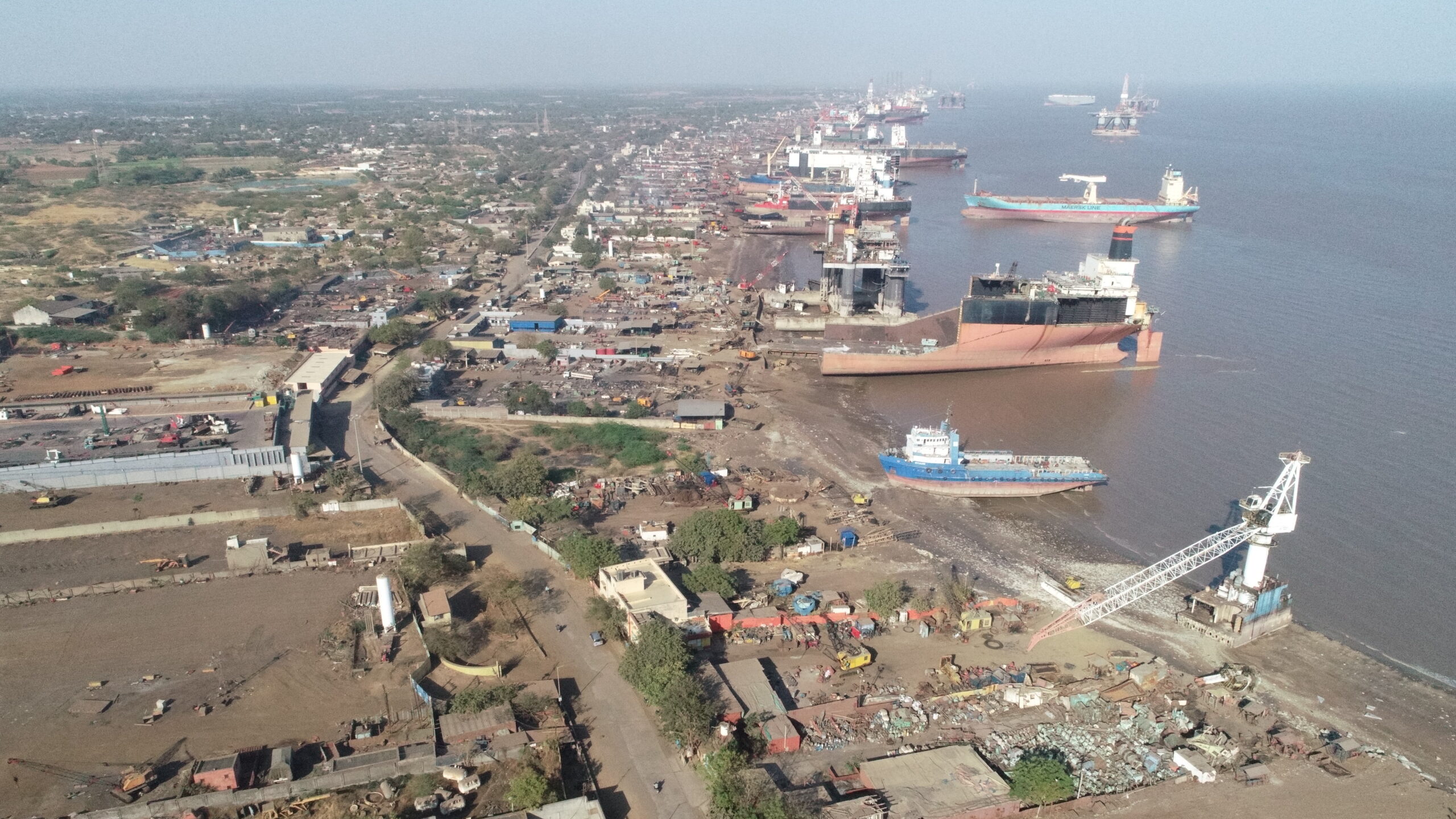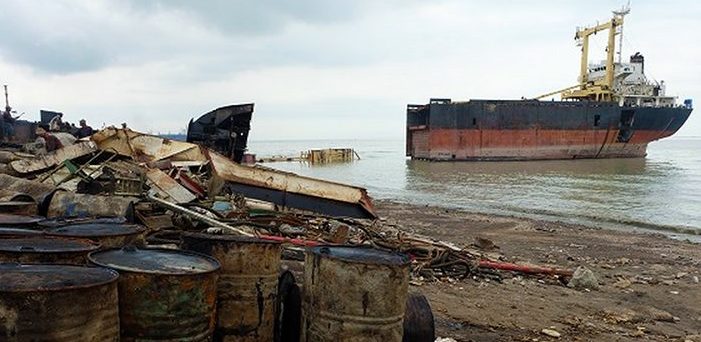Countdown to Compliance: Ship Recycling Industry Braces for the Hong Kong Convention as EU Legal Tensions Mount

30 May 2025
LONDON — In a keynote address that set the tone for the 2025 Responsible Ship Recycling Forum held in London on 14 May, Michael Jürgen Werner, a partner at global law firm Norton Rose Fulbright, delivered a message of cautious optimism mingled with legal realism. “We are living in times of change, and we start with very good news because we are only six weeks ahead of the Hong Kong Convention (HKC) coming into force,” he told delegates. After nearly two decades of negotiation and stalled progress, the long-awaited implementation of the HKC is finally within reach. But as Werner emphasized, the path forward remains riddled with regulatory hurdles—particularly for those navigating the often contradictory terrain of European Union law.
The HKC, adopted under the International Maritime Organization (IMO) in 2009, aims to ensure environmentally sound and safe ship recycling practices. Its enforcement marks a historic milestone for maritime environmental governance. However, its impact is already being complicated by pre-existing European regulations and their lack of alignment with global realities.
A Long-Awaited Milestone
The HKC’s pending enforcement is a significant achievement for advocates of sustainable shipbreaking practices. Aimed at improving worker safety and reducing environmental hazards in ship recycling yards, the Convention establishes binding requirements for shipowners, recycling facilities, and flag states.
Yet Werner’s keynote made clear that the celebration comes with caveats. “It took a long time to get the ratifying states together, but now we’re here,” he said, acknowledging the diplomatic achievement while underscoring that ratification is just one step in a much broader process of implementation and harmonization.
For much of the global fleet, particularly those flagged to nations newly aligned with the HKC, compliance will soon become a legal necessity. However, the Convention’s global ambition faces resistance and inertia, especially within regions like the European Union that already have overlapping and sometimes contradictory frameworks.
The EU’s Regulatory Straitjacket
One of the most pressing concerns raised by Werner is the collision course between the HKC and the European Union’s existing legal frameworks—namely, the Waste Shipment Regulation (WSR) and the Ship Recycling Regulation (SRR).
At the crux of the issue is the EU’s prohibition under the WSR on exporting waste to non-OECD countries. Since most of the world’s ship recycling capacity is concentrated in non-OECD nations—especially India, Bangladesh, and Pakistan—this restriction has become a de facto blockade for EU-flagged vessels seeking cost-effective and compliant end-of-life solutions.
“The EU put themselves into a straitjacket with this because it promised waste shipping only to OECD countries,” Werner noted. “But what about the rest of the world, the non-OECD countries? Only a minority of countries are part of the OECD.”
The SRR was intended to provide a ship-specific legal structure within the EU, distinguishing ship recycling from broader waste shipment rules. In theory, this regulation opens a door to the use of non-OECD facilities, as long as they are approved by the European Commission based on equivalent standards. However, in practice, this mechanism has stalled.
Article 11: The Bottleneck
The supposed release valve in this regulatory puzzle—Article 11 of the SRR—allows EU-flagged ships to be dismantled in non-OECD yards if those yards obtain EU approval based on adherence to standards equivalent to those set by the EU.
In reality, according to Werner, this legal path has become a cul-de-sac. “There needs to be an equivalent agreement between individual non-OECD countries and the EU,” he explained. “I’m not aware that we have any kind of agreement yet. There have been discussions, but we are not there yet, particularly with the three big countries on ship recycling: India, Bangladesh and Pakistan.”
This bureaucratic inertia has not deterred interest from outside the OECD. Close to 50 facilities from countries like India and Bangladesh have applied for inclusion on the EU-approved list, but the European Commission has remained largely unresponsive.
Werner described the Commission’s stance as “relatively silent,” a characterization that speaks volumes in a sector where time is money and delay translates into legal exposure.
Criminal Prosecutions and Legal Exposure
Indeed, the regulatory ambiguity has turned from an administrative headache into a legal minefield. Shipowners, often stuck between EU rules and the practical realities of global ship disposal markets, are increasingly finding themselves in the crosshairs of national prosecutors.
Werner cited recent cases from the Netherlands and Germany where authorities have begun targeting the ultimate beneficial owners of vessels dismantled outside the approved list of facilities. These prosecutions, framed under the guise of environmental crime and illegal waste export, mark a notable escalation in enforcement.
“Both the Netherlands and most recently Germany, out of frustration about what they see as circumvention, started prosecutions,” Werner warned. “The threat is on the individuals who are the ultimate business owners of ships.”
The shift is not incidental. A new wave of EU environmental crime directives has bolstered the enforcement powers of member states, arming prosecutors with sharper tools and lowering the thresholds for establishing criminal liability.
This has left shipowners, and particularly the financial actors behind them, in a precarious position. With the legal burden now extending beyond corporate entities to individual executives, the stakes have never been higher.
A Fork in the Road for Global Trade
The Hong Kong Convention’s enforcement was expected to harmonize global ship recycling practices, but the EU’s divergence from its principles presents a fork in the road. As Werner sees it, the choice is now between continued regulatory fragmentation and a more pragmatic realignment that takes into account the operational realities of the global shipping industry.
For the Convention to achieve its intended impact, Werner stressed the need for the EU to reassess its current position. “The EU needs to do its homework now that Hong Kong is in place,” he said in closing. It’s a call for policy coherence in an area where legal misalignment is not just a bureaucratic inconvenience—it’s a real-world bottleneck that risks undermining the spirit of global cooperation embodied in the HKC.
Industry Response: Wait and Watch—or Act Now?
While regulators debate, industry leaders are left to manage uncertainty. With the Convention now just weeks from enforcement, questions loom large: Will the European Commission accelerate the approval process for non-OECD facilities? Will agreements be reached with South Asian nations that dominate the recycling landscape? Or will EU-based shipowners begin reflagging vessels to jurisdictions outside the Union to circumvent legal risk?
Some shipowners are already exploring alternatives. A growing trend of reflagging, strategic asset transfers, and even offshore holding arrangements reflects a sector seeking workarounds in the absence of clear policy. But these tactics carry their own risks—reputational, legal, and operational.
Legal advisers are now urging proactive compliance strategies. From more rigorous due diligence to transparent end-of-life planning, the new normal will demand that shipowners embed regulatory foresight into their business models.
A Defining Moment for Maritime Governance
As the clock ticks toward the HKC’s implementation, the shipping world finds itself at a defining moment. The Convention’s arrival is undeniably a cause for celebration, a testament to years of advocacy and negotiation. But its success will ultimately depend on how well global and regional regulations can be brought into alignment.
For the EU, this means reconsidering long-held political commitments and embracing a more adaptable legal framework—one that reflects the environmental goals of the HKC while accommodating the global realities of the ship recycling industry.
For shipowners, it means accepting that the era of regulatory leniency is drawing to a close. With legal liability extending to the top echelons of corporate leadership, the old tactics of plausible deniability and procedural delay are no longer viable.
As Werner aptly put it, “Let’s hope for the best and prepare for the future.” For an industry long mired in ambiguity, that future is arriving fast—and it’s coming with rules.
Author: shipping inbox
shipping and maritime related web portal








